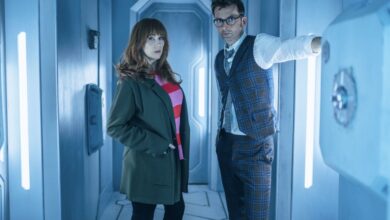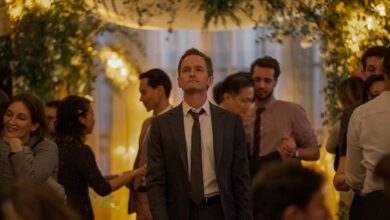The Last of Us Episode 4 Review: Big Trouble In Kansas City | HBO Max
Cast: Pedro Pascal, Bella Ramsey
Director: Jeremy Webb
Streaming Platform: HBO Max
Filmyhype.com Ratings: 4/5 four stars)
After a sensational third episode, the HBO series returns With The Last of Us Episode 4 to its main course and focuses on the next leg of Joel and Ellie’s journey. The past week was simply triumphant for The Last of Us: the third episode of the series exclusively on HBO Max (here is our review of The Last of Us Episode 3) has completely overwhelmed the world audience, setting another audience record for the story of Bill and Frank. The HBO-branded show then returns with a fourth episode that quickly sets aside the delicacy to burst into the viewers’ minds with the pathos of the main narrative. Joel and Ellie’s journey thus resumes, between interesting hints and ever greater vicissitudes, focusing its attention on the alternation between relationships that grow and others that break in a world adrift. Neil Druckmann and Craig Mazin pack what in all respects represents a narrative micro-arc, this time closely linked to some of the events told in the video game – albeit integrated and in-depth where necessary, without fear of modifying some details or developments to favor the yield on screen.
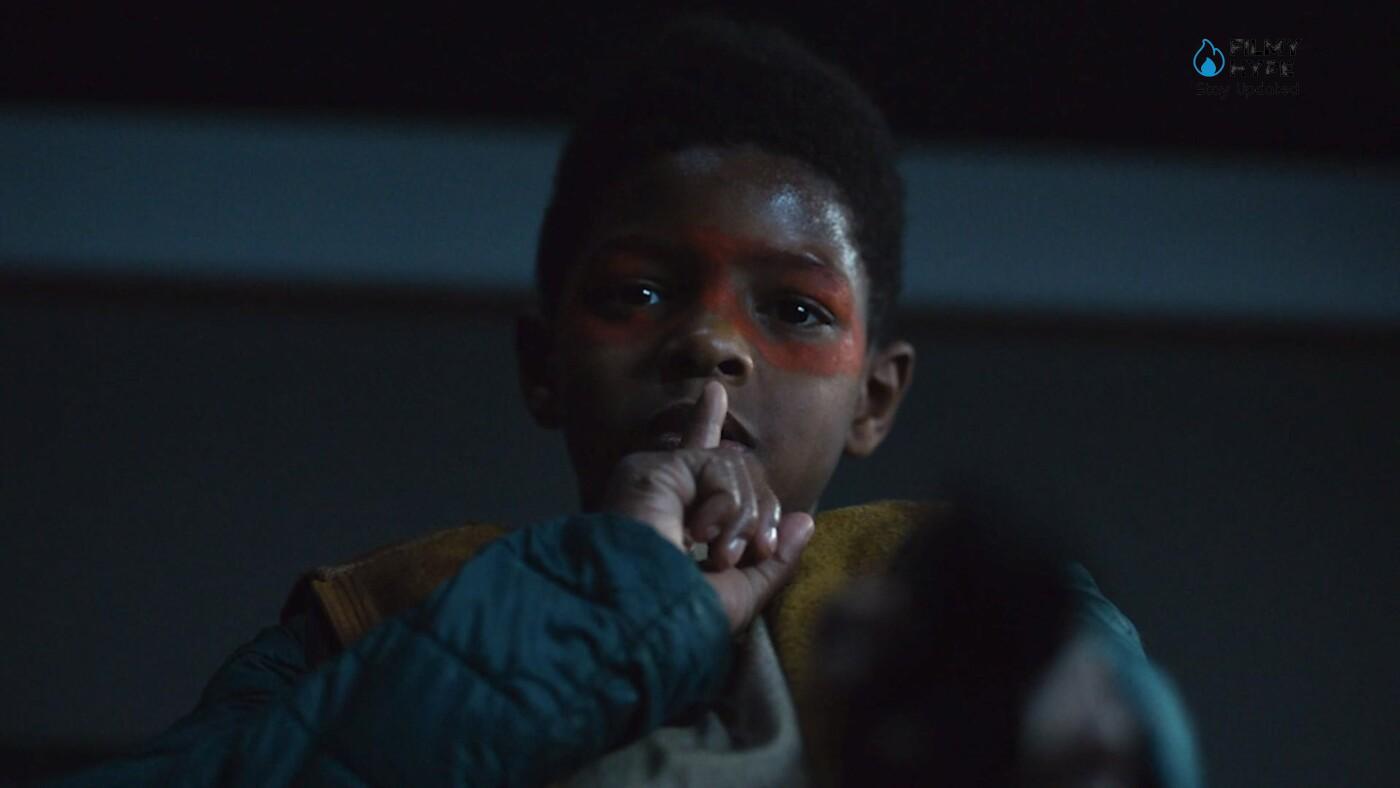
As we will see in this review of The Last of Us 1×04, this fourth episode, entitled Please Hold My Hand, is a confirmation of the excellent sensations received up to now and as were its predecessors, constitutes a fundamental step forward in the construction of an epic and engaging narrative. Above all, it is from this point that the story seems to get to the heart of what is the essence of The Last of Us, that is the relationship – for now still in the beginning but increasingly strong – between Joel and Ellie, a relationship that will bring a huge change for both: she will face the world for the first time, finding in Joel that protective father figure he never had, but he will finally start living again, twenty years after the tragedy of his daughter’s death.
The Last of Us Episode 4 Review: The Story Plot
Noting the situation regarding Bill and Frank in Lincoln, Joel (Pedro Pascal) and Ellie (Bella Ramsey) continue their journey to Wyoming in search of Tommy (Gabriel Luna). Passing between abandoned highways and desolate ruins, the relationship between the two begins to show the first attempts at understanding: small glimmers, fleeting fragments in which two tormented souls approach each other with extreme caution, trying not to stumble in the conflict. From the pick-up journey to the arrival in Kansas City, the protagonists’ concerns will re-emerge in a story that returns to talking about survival and morals. The episode directed by Jeremy Webb certainly does not stand out for particular directorial choices, but it becomes perfectly functional to the beautiful dialogic structures of the scripts: the alternation of interpersonal developments, meticulously cared-for scenarios, and references to the reference work enhances the work thanks to the mastery of the showrunners.
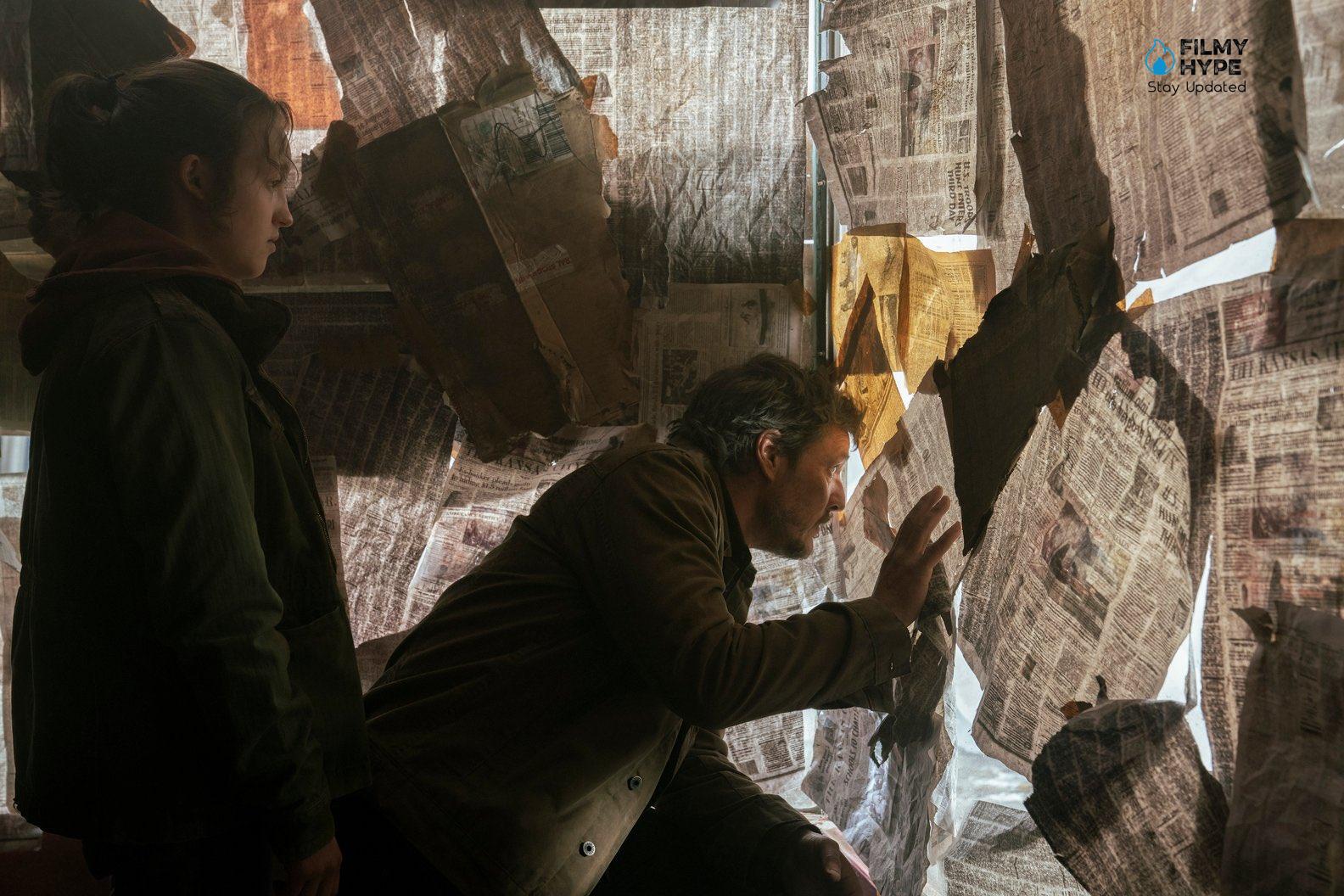
The story thus acquires a completely different pathos, more immersive and constant in keeping the tension high – which is evident even for the protagonists themselves. The danger becomes the main protagonist of an episode vexed by the conflict between ethics and personality, introducing some interesting characters in an oppressive context in which the exasperated sense of community risks making barbarism prevail over reason. Not surprisingly, the preponderant colors are gradually duller as the boundaries of morality become foggier: in a hostile world, brutality and instinct reveal the strengths of a short narrative arc with an extreme emotional charge, intense like few others. While placing the (classically human) desire for peace below the perspective of a future for oneself, it is through the idea of motivation that each character emerges in its depth, offering an all-round look at the terrible dynamics of a universe that always the more it stands on the verge of collapse and which pushes the observer to question their idea of justice in the face of unthinkable events.
The Last of Us Episode 4 Review And Analysis
Maintaining a surprising coherence not only in aesthetics but above all in the ideology behind each narrated sequence, the story of The Last of Us seems to collect all the envy preserved in the last episode to leave it free to reap victims of blood and genius. A constant threat to the characters who alternate on the screen, a silent shadow that digs deep into the human soul to take the reins of conscience and lead it toward oblivion. Druckmann and Mazin show with renewed temerity the intention to tell the post-apocalyptic humanity through multiple points of view, making the most of the impressive amount of products made available to them.
In the face of the specter of death, can a sense of community prevail? Perhaps not even the authors are so convinced, to the point of showing with maniacal precision reasoning and considerations free from the classic stylistic features of the genre. The heart of the episode, thanks to the masterful interpretations of the protagonists, allows us to emphasize the cruelty of a reality in which the individual obtains the possibility of placing himself above others, but at the same time cherishes the delicate hope of a world in which altruism may still be worth something through sacrifice. The Last of Us is a dark world in which you get lost easily, but in which one must never stop looking for those tiny glimmers of light. The perfect balance of themes and events alternates with the total absence of moral balance, with incredibly enveloping atmospheres that act as a mirror to alienating cynical personalities.
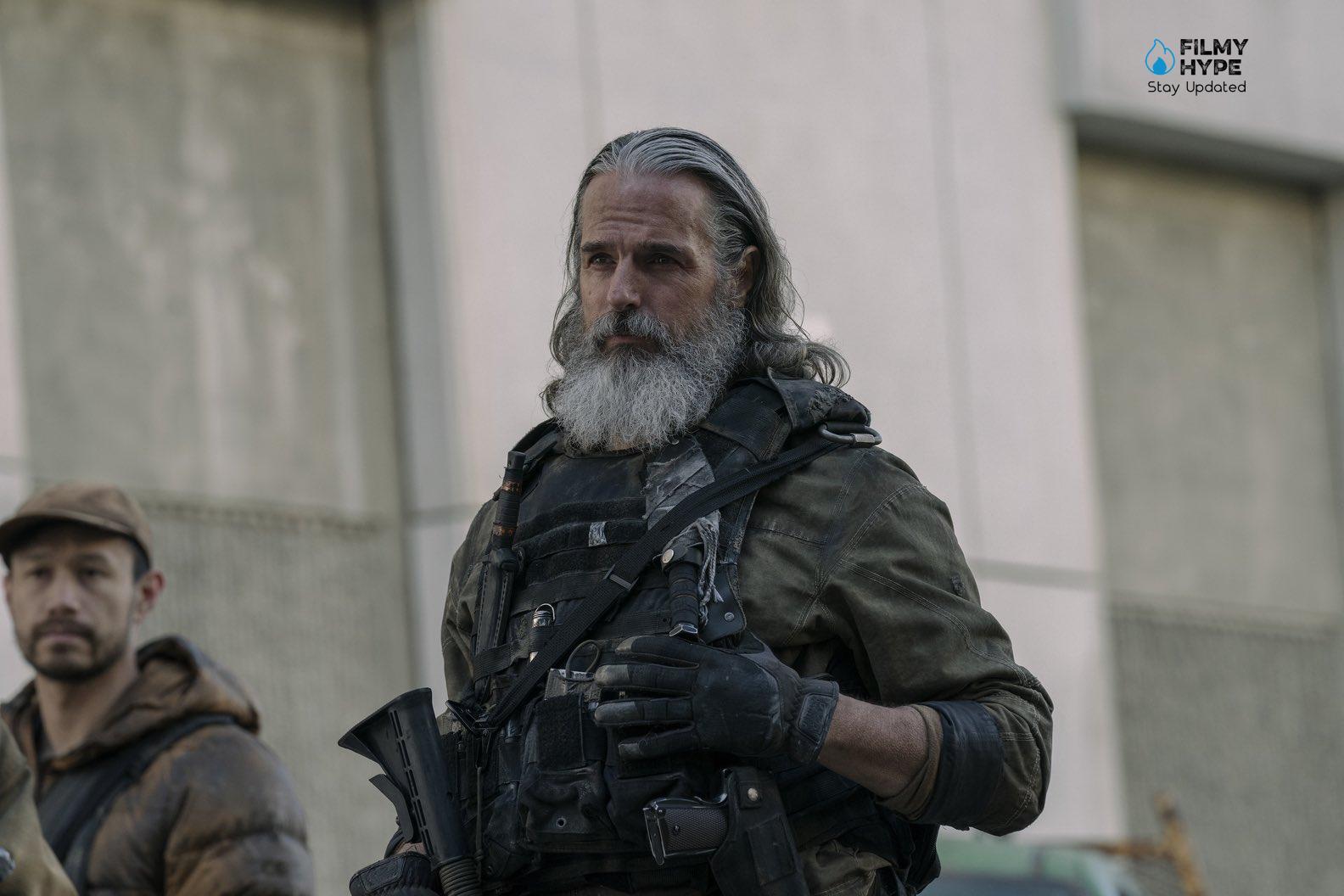
The showrunners do an excellent job of granting the right space that allows the viewer to “experience” the agony, forcing him to seek pure genuineness (or serenity) in the absence of oxygen, where indifference reigns. The feeling of nihilism enters the bones, cold and pungent, bringing horror closer with methods that feel directly on; yet, as already noted in other episodes, the series allows the viewer to stay afloat with occasional moments of that humanity that warms the heart and lifts the spirit. The fourth episode of The Last of Us manages, through excellent pacing management, to rise above average in terms of general tension. The HBO-branded show brings characterizing environments of the world infected by Cordyceps back to the stage but even manages to confirm itself episode after episode as the flagship product of the current television season. Thinking of being faced with the adaptation of a videogame work, the comparison still leaves you speechless for general yield and improvement approach in writing.
While not all supporting actors can create the same impact on audiences, with some performers unable to keep up with the show’s leading faces, HBO plunges headlong into an intense and cohesive mini-arc. A story, as the next episodes will demonstrate, that will keep you glued to the screen from start to finish. Even from a preparatory perspective, The Last of Us succeeds where others have failed and takes its dialogue to very high peaks. For a series that tells the results of an epidemic that has transformed humans into bloodthirsty monsters, very few have been infected so far. However, this does not make certain moments of this episode less tense and exciting, because – as many other zombie movies have taught us – the real danger in this kind of story is the people.
In a world where survival is at risk every day, where there are no political and social structures (if not the military dictatorship), what scares more than the undead without reason is what men, to satisfy certain needs or simply to live one more day, they might do. Joel says to Ellie while bivouacking in a wood, human beings are the ones we need to defend ourselves from. And in the sequence in which the two find themselves stuck in the city, the worst ugliness of a civilization that no longer exists becomes immediately evident. And for Ellie, it’s time to grow up fast. Growing yes, but leaving aside the more playful, carefree, and child side, for now, seems to be impossible; the moment in which the two protagonists, before sleeping, joke and laugh together after a joke from Ellie is truly one of the most exciting of the entire episode.
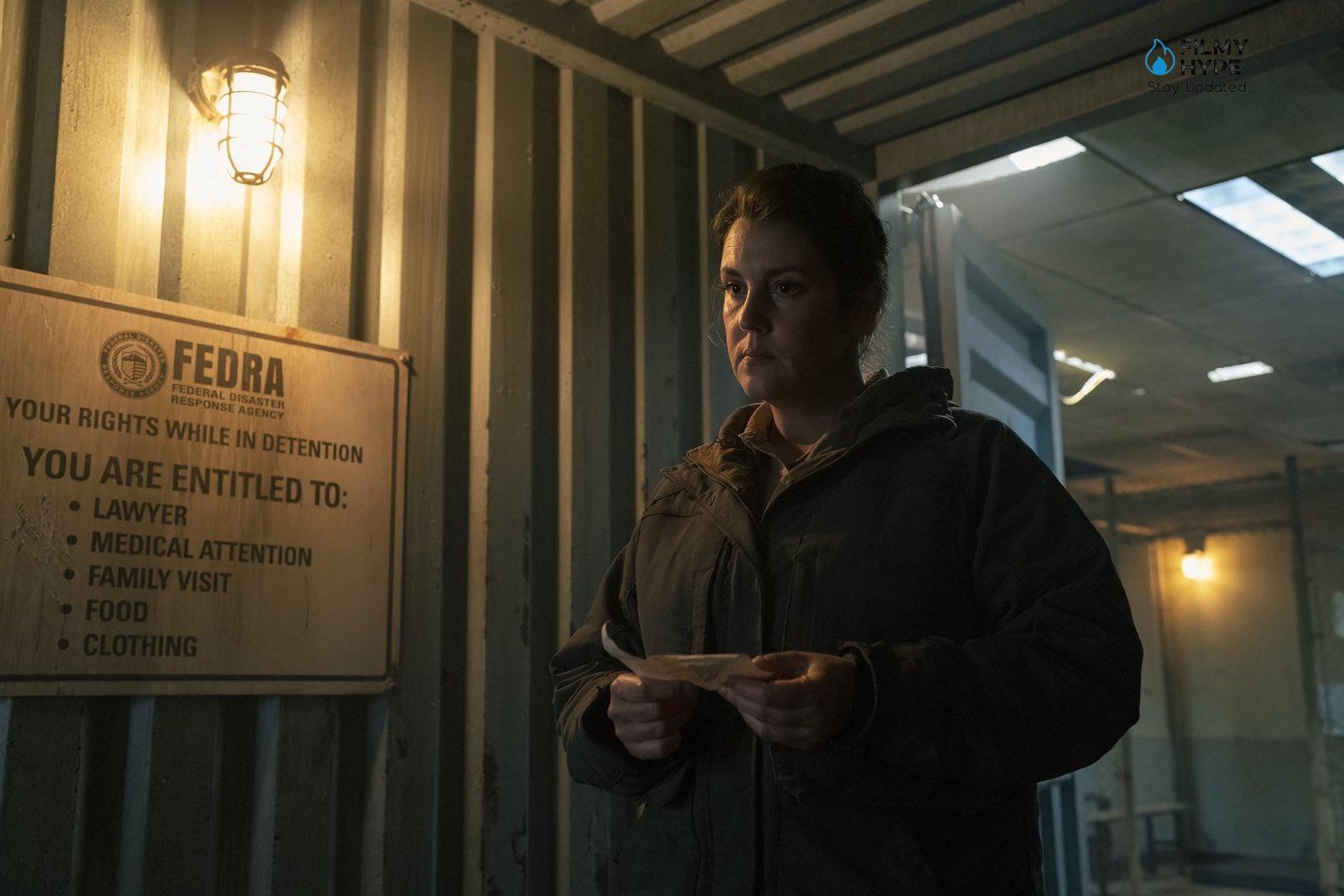
It is in moments like these, of which the fourth episode of The Last of Us is rich, that the choice to entrust Bella Ramsey with the role of Ellie seems more apt than ever: her Ellie is carefree, brilliant, courageous, and ferocious at the same time himself, capable of immediately establishing a very strong connection with the viewer. The alchemy with Pedro Pascal’s Joel is then really palpable, the two already manage to reveal the strength of a bond that will become ever closer, of a codependency essential for the survival – but also the emotional well-being – of both. The feeling, as we proceed with the vision, is that of a story capable in all respects of capturing the viewer, mixing genres to give life on the screen to an adventure, horror, and survival story, characterized by a lyricism truly unique (which we have hardly found in television products of this type) and capable of representing the different facets of the human being. The people in The Last of Us show their most barbaric and violent nature, but also their most unique and precious nature, the one that allows us to love even in the darkest and most unexpected situations.
The Last of Us Episode 4 Review: The Last Words
The Last of Us Episode 4 allows us to get to know the pair of protagonists even better and shows us how, in a post-apocalyptic world like theirs, it is not infected that we need to fear but human beings. The fourth episode of The Last of Us returns to focus on the main plot, alternating scenes known to all with wide-ranging sequences and new points of view into the events. With incredible scenographic care and a very strong interpretation by the protagonists, the gaze toward the community shows all the flaws of individuals tormented by pain. The maniacal care for the exchanges between the characters and the careful construction of the tension leads the observer to question the morality of others – and perhaps even their own.





